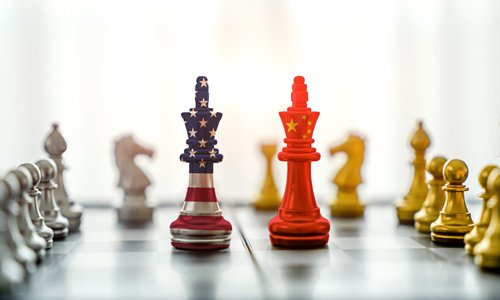
The October 5 Zurich meeting was low-profile but remarkable as Yang Jiechi, a member of the Political Bureau of the Communist Party of China (CPC) Central Committee and director of the Office of the Central Commission for Foreign Affairs, and Jake Sullivan, US national security advisor, exchanged views candidly and constructively, reaching actionable consensus on multiple fronts especially that would witness the institutionalization of high-level engagement of the two sides. What stands out from the meeting, if not defining, however, is the two sides' different interpretations of the nature of competition rooted in the current China-US relations.
In the author's view, such a fundamental difference is derived from the two countries' departed understanding of security as a critical policy concept. Sullivan should first understand how China understands security before discoursing China's internal and external policies. Ultimately, a new set of rules of engagement between China and the US that is positively applicable or at least referable in various risk scenarios, such as the Taiwan question, should be encouraged.
The understanding of security in China and the US' respective political contexts is fundamentally different. In Chinese security culture, the sense of security is internal and thus its defense and security policy are inward-facing. This explains the long-standing pillar feature of "self-defense" in its defense policy and the principle that China will not launch an attack unless it is attacked. To put it less abstractly, the endogenous nature of security in the Chinese context originates from the community level and extends to the national level. It is the established security in families, neighborhoods, and communities that constitutes the country's overall established security. Henceforth, internal security is fundamental in the country's effective governance and a prerequisite for its political security. The past several decades of reform and opening-up under the leadership of the CPC that empowered the country to achieve the goal of eliminating absolute poverty and building a well-off society in an all-around way exemplifies how the CPC effectively turns economic development into the key source of internal security. For instance, it's irresponsible for some people to demonize China's governance efforts in Xinjiang when these efforts are for the true empowerment of the local citizens.
Nonetheless, the US' sense of security is external as to what extent it perceives it has established security depends on its threat perception on external actors, be it state or non-state actors. In US' national security documents, predefined and tone-setting terms such as "challenges from great powers," "adversary," and "enemy" can be easily noted to securitize the engagement with "the other." With the passage of time and increase of modern war experience in the form of military intervention, in a top-down way, the country's perception and security culture that believes their established security is based on established security of the external environment where "threats" in the US' definition exist become further strengthened. Therefore, establishing a secure external environment is fundamental in achieving national security for the US in both strategic and physical terms as shown in the case of its China policy and counter-terrorism policy.
The CIA has created a Special China Unit to focus on China. In the foreseeable future, as China continues to integrate into global governance with an all-around development especially in critical technology that in Americans' minds would challenge its command-and-control system and bring the meaning of "danger" into the "threat" definition, such news would no longer make news.
The above-explained fundamental differences in security conception and perception of the two major powers also elucidate China's opposition in defining the bilateral relationship as "competitive." Similar to engagement, competition would require the proactive participation of at least two actors to be formed. In the case of China and the US, just as shown in its most recent move to join the CPTPP, China is keen on contributing to the establishment of an open and equal environment that would invite and sustain international cooperation under a multilateral framework.
Fundamental differences, however, by no means deny the opportunity for the major-power relationship to be on a solid footing. The tacit understanding of counter-terrorism that once existed between the two countries in the post 9/11 era gradually disappeared. Nevertheless, from Anchorage to Tianjin and to Zurich, both sides acknowledge the necessity of cooperation to combat common nontraditional security challenges represented by climate change and more. All things considered, facing the new reality of the global security landscape and the fundamental differences between the two, a new set of rules of engagement should be established.
First, the rules should guarantee or at least assure the undisturbed regional and international economic and trade order that involves the two. Newly imposed trade policies under the new rules are not to be over-politicized and should produce reciprocity.
Second, the rules should show full respect to each other's sovereignty, culture, and history.
Third, in territories outside of both China and the US where the two have a presence, the rules should encourage cooperation and tone down competition.
All in all, bringing down the curtain on a tensed rivalry requires strategic patience, wisdom, broad-mindedness, and the necessary passage of time. The US was able to make a sharp turn in its foreign military deployment policy to hold back further costs. It should, hopefully before the next high-level bilateral meeting, know well that plans to deliberately counter China using a whole-of-government approach might be no more than a house of cards.
The author is founder and chairperson of Shanghai-based think tank Bond Power Group.

